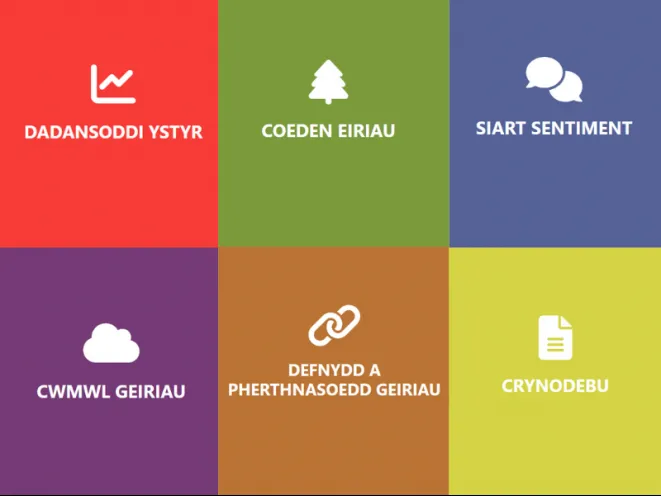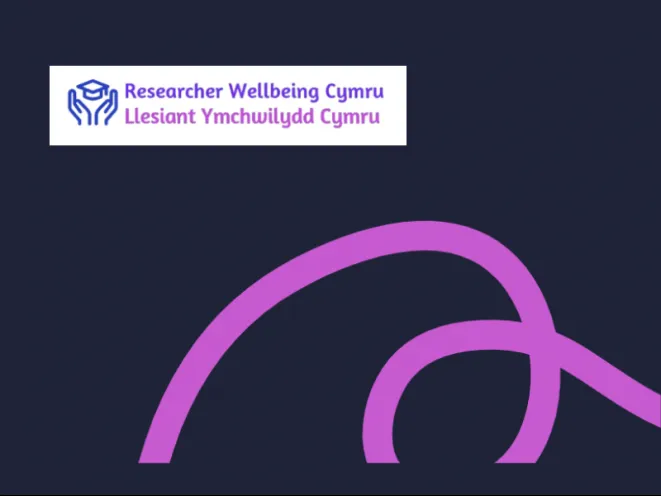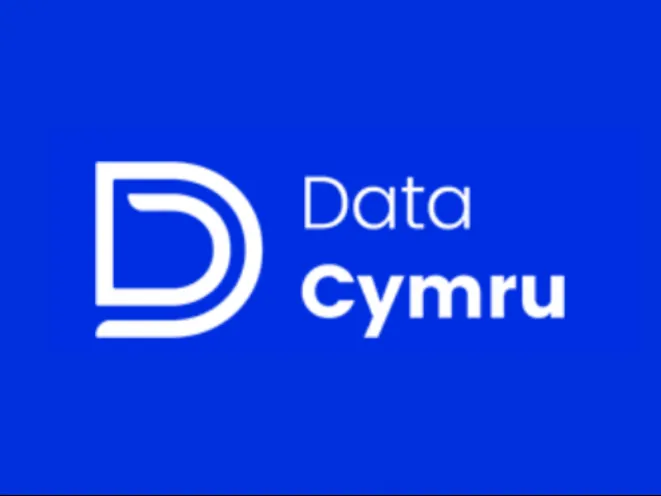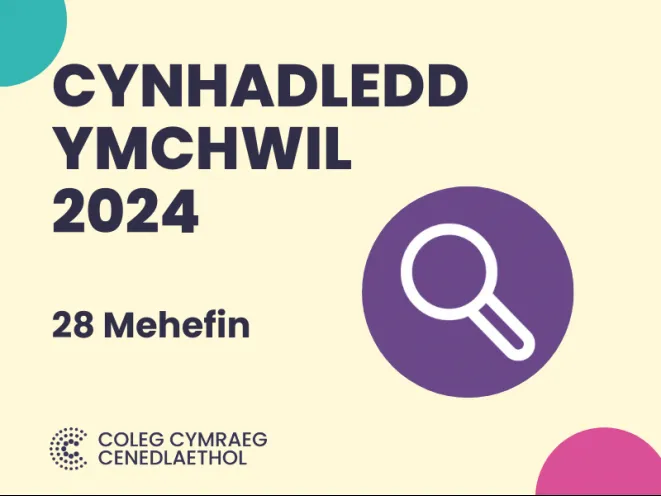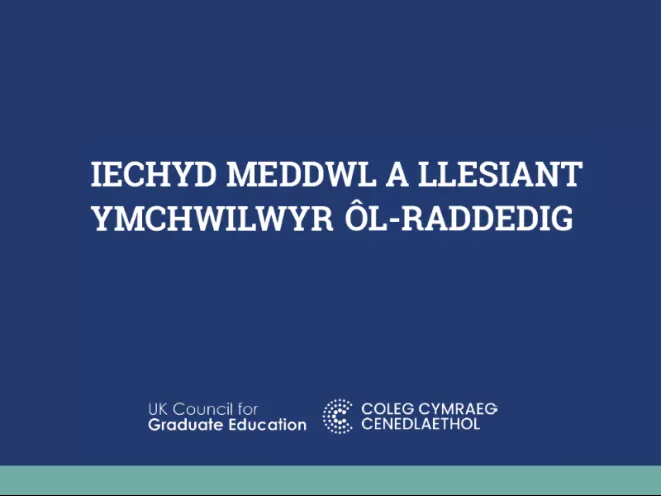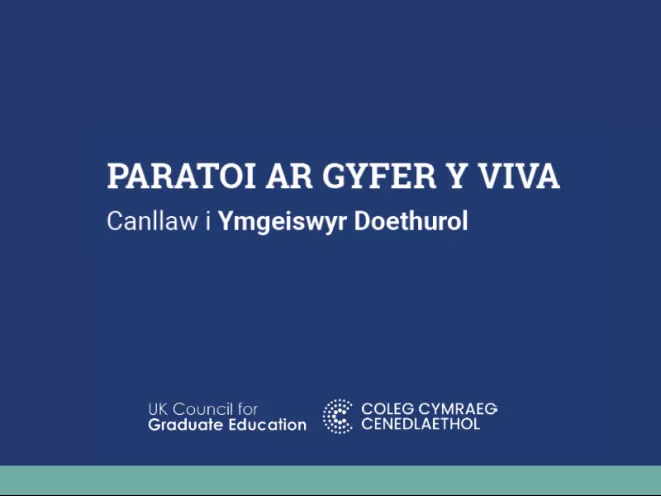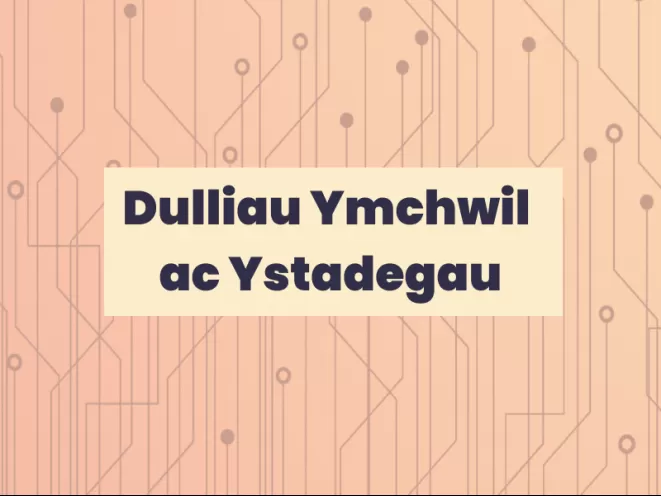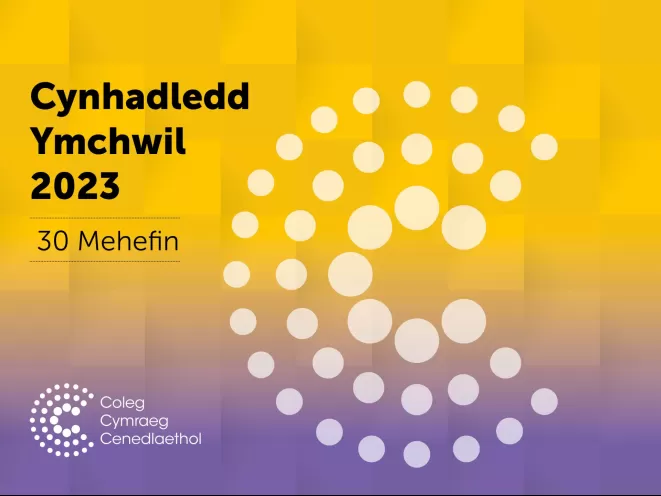FreeTxt helps you analyse and visualize free text data in Welsh and English, such as data from surveys and questionnaires. FreeTxt enables you to perform up to six different types of textual data analysis for each file. You don't need to be able to code or learn how to create graphs, either - FreeTxt does the hard work for you!
Researcher Wellbeing Cymru
Researcher Wellbeing Cymru (RWC) is an online resource designed to enable doctoral researchers to foster a healthy sense of wellbeing. It can help you navigate your doctoral journey, become more resilient and identify beneficial ways of working. You can expect to find resources about working with your supervisors, managing your time, and keeping motivated. Doctoral researchers from universities across Wales were involved in creating resources. This resource has been developed by academics and professional services staff involved in doctoral education at Cardiff Metropolitan University and Aberystwyth University in collaboration with other universities in Wales.
Edward Lhuyd annual lecture
The Edward Lhuyd Lecture is an annual presentation on various aspects of academic and contemporary life in Wales and the world. The presentations cover a wide variety of themes including geology, literature, ecology or history. The lecture is organized between the Coleg Cymaeg and the Learned Society of Wales. Note, there were no lectures in 2020 - 2022 due to Covid-19.
Artificial intelligence and research
A presentation by Dr Seren Evans on her research into the role of Artificial Intelligence in predicting non-contact leg injuries within Rugby Union, and a recording of a panel discussion on artificial intelligence and its implications, challenges and opportunities for researchers with: Dr Cynog Prys, Senior lecturer, Sociology and Social Policy, Bangor University Dr Seren Evans, Lecturer, Sports Sciences, Bangor University Dr Neil Mac Parthaláin, Senior lecturer, Computer Science, Aberystwyth University Professor Huw Morgan, Physics, Aberystwyth University The event took place in Aberystwyth on 27 June 2024.
Survey design and analysis
This guide from Data Cymr provides practical advice and guidance for people who need to prepare, produce and design surveys and analyze the data , focusing on questionnaires and interviews. Content: What are surveys, their purpose, and why and when to use them Types of surveys How to create a survey Population and sampling Designing questions Data collection Data analysis Sharing the results
Designing and running focus groups
This guide by Data Cymru provides practical advice and guidance for anyone considering using focus groups as a research method. Content: What are focus groups, their purpose, and why and when to use them The main elements needed to prepare effective focus groups Planning a focus group Recruitment and participation Delivering a focus group effectively
Coleg Cymraeg Research Conference 2024
This Research conference will be held in hybrid form again this year, on 28 June, with a face-to-face audience at the National Library in Aberystwyth, as well as a live broadcast to a virtual audience. You can find more information about the conference in the Coleg Cymraeg events calendar.
Setting aims and objectives for researchers
A presentation by Dr Hanna Hopwood to postgraduate students to share advice on how to make the most of your time and energy when researching. Dr Hanna Hopwood is a lecturer in the Department of Linguistics, University of Oxford. She is also a project manager and about to complete the ILM Level 7 in executive coaching and mentoring. In addition, she has followed several courses on Compassion Focused Therapy and incorporates the models from that teaching at every possible opportunity into her work every day. This presentation encourages you to consider: What kind of learner are you? What is going to help you personally in setting your research goals and objectives? What kind of atmosphere and study pattern works for you? What can help set good habits? How can you structure your time effectively? What strategies can work when setting goals and objectives? How can you make the most of your time and energy? To accompany this resource, a live online workshop titled Setting Goals and Objectives for Researchers will be held with Dr Hanna Hopwood on 20 May at 11:00 to delve deeper into the above questions, and to share good practice and further advice.
Supporting the mental health and wellbeing of postgraduate researchers
A guide for PhD supervisors on how to support the mental health and well-being of your research students. The guide includes the challenges researchers may face during each stage of their doctorate, and possible good practice solutions. Translated by Coleg Cymraeg Cenedlaethol in association with UKCGE.
Preparing for your Viva
A guide for doctoral candidates on preparing for the Viva exam. The guide contains information on how to prepare for the exam, what to expect on the day, and frequently asked questions in a Viva exam. The information was translated by Y Coleg Cymraeg Cenedlaethol in collaboration with UKCGE
Research Methods and Statistics
This Welsh-medium e-textbook is a comprehensive introduction to the process of planning and conducting research. Aimed primarily at Psychology undergraduates, it accompanies Welsh-medium research method and dissertation modules. It is also a useful resource for undergraduate and postgraduate students in a wide range of other subjects. The authors of the textbook are Dr Awel Vaughan-Evans, Dr Gwennant Evans-Jones and Emma Hughes-Parry.
Coleg Cymraeg Research Conference 2023
This Research conference will be held in hybrid form again this year, on 30 June, with a face-to-face audience at the National Library in Aberystwyth, as well as a live broadcast to a virtual audience. You can find more information about the conference in the Coleg Cymraeg events calendar.

